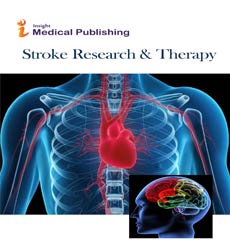Abstract
Hypothermia: a Therapeutic Option in Management of Stroke?
With an availability of a single medical therapy, ischaemic stroke continues to be one of the leading causes of mortality and morbidity in the World. Hence it is of paramount importance to find alternative therapies that can simultaneously affect various molecular mechanisms and demonstrate long term effects. Hypothermia has long been considered as a therapeutic option in preventing ischaemia-mediated brain damage and is already in place as an efficacious neuroprotective treatment regimen in neonatal hypoxic encephalopathy and in adults after cardiac arrest. However, before becoming an approved treatment for stroke, a comprehensive understanding of molecular mechanisms involved in its putative beneficial effects during or after ischaemic cerebral damage is needed. Furthermore, strong evidence on the optimal conditions in that hypothermic therapy may be administered and a thorough understanding of the associated potential complications are also required. This review paper initially discusses the optimal conditions in which hypothermic therapy may be safely applied before pointing out the systematic complications that may emerge from this treatment.
https://tipobette.com https://vdcasinoyagiris.com https://venusbetting.com https://sahabetting.com https://sekabete.com https://sahabete-giris.com https://onwine-giris.com https://matadorbet-giris.com https://casibomkayit.com https://casibomba.com https://casiboms.com https://casinoplusa.org https://casibomlink.com https://yenicasibom.com https://jojobetegiris.com https://jojoguncel.com https://jojobetyeni.com https://girisgrandbetting.com https://pashabetegiris.com https://grandbettingyeni.com
Author(s):
Ben Loach and Ulvi Bayraktutan
Abstract | Full-Text | PDF
Share this

Google scholar citation report
Citations : 63
Stroke Research & Therapy received 63 citations as per google scholar report
Abstracted/Indexed in
- Google Scholar
- Secret Search Engine Labs
Open Access Journals
- Aquaculture & Veterinary Science
- Chemistry & Chemical Sciences
- Clinical Sciences
- Engineering
- General Science
- Genetics & Molecular Biology
- Health Care & Nursing
- Immunology & Microbiology
- Materials Science
- Mathematics & Physics
- Medical Sciences
- Neurology & Psychiatry
- Oncology & Cancer Science
- Pharmaceutical Sciences

